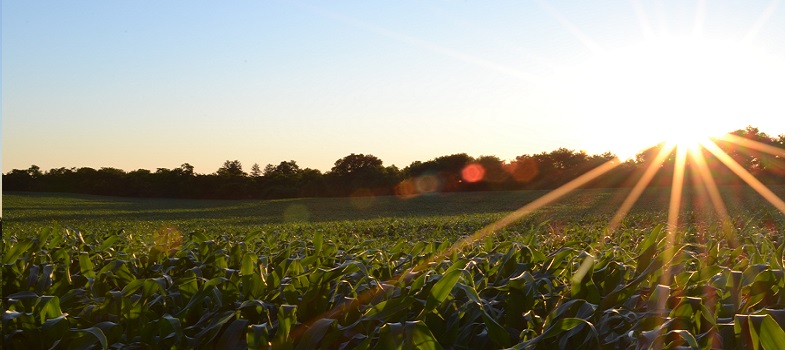The multi-stakeholder approach and the importance of agricultural advisors
Now that I have explained what the AgriLink Living Labs were trying to do in terms of developing innovative advisory support services in different agricultural settings, let us take some time to reflect on what agricultural advisory services are like in Europe and how they currently operate.
Agricultural innovations, particularly those innovations leading towards more sustainable agriculture, are increasingly seen as emerging in and best advanced by multi-actor learning networks (including Living Labs) where different stakeholders with their various kinds of knowledge meet, negotiate and institutionalise new meanings and new farming practices (Šūmane et al., 2017; Moschitz et al., 2015).
Knowledge or learning networks make explicit the interactive and participatory character of knowledge generation and innovation, with all the stakeholders, including the farmers, being active partners and knowledge co-producers, exchanging knowledge as noted in Session 2. In order to reach different stakeholders’ mutual understanding and learning, and enhance the generation of innovation, the interactions between and within these groups of actors need to be facilitated.
Knowledge brokerage (see Box 1.2 [Tip: hold Ctrl and click a link to open it in a new tab. (Hide tip)] ) or intermediary activities to reduce knowledge gaps is key in enabling multi-actor learning networks and in integrating various knowledge cultures (Tisenkopfs et al., 2015).
While all actors in a real-life setting potentially can become knowledge brokers, it is expected that agricultural advisors or agricultural advisory services take a central mediating role and facilitate connections and knowledge exchange among various stakeholders for joint learning. In such multi-actor environments or networks, all the actors are co-creators of innovation.
The notion of knowledge brokerage has changed. Knowledge brokering involves facilitating interactions, learning and co-creating of innovation among various stakeholders. Brokering refers not only to overcoming knowledge gaps, but a range of social, ideological, cognitive and other kind of gaps.
Therefore, the concept of innovation broker and systemic facilitator appears. Innovation brokering is no longer associated with agricultural advisors, it can be whatever actor performs these functions of innovation facilitation.
 Reflective Activity 7
Reflective Activity 7
I have talked about learning and knowledge a lot so far. From that and your own experiences, how do you view the role of knowledge in agricultural decision making?
Answer
Here is one view provided by Anda Adamsone-Fiskovica of the Baltic Studies Centre in Latvia in her AgriLink Practice Abstract on Types of knowledge and their role in providing agricultural advice:
Knowledge is a key resource in any domain of human activity, including agriculture. Farmers are acquiring theoretical and practical knowledge from various sources, but their status and credibility can vary.
There are power relations in any production, dissemination and application of knowledge represented by various kinds of individuals and organisations, which allow or restrict them from exerting influence on these processes. This bears implications for the type of knowledge that comes to be acknowledged or rejected as valid, credible and useful by farmers, advisors, scientists, policymakers, and other actors in the agricultural knowledge and innovation system.
The sociology of knowledge, being part of a broader field of science and technology studies, aims to reveal the relations between different kinds of knowledge possessed by various stakeholder groups and the way it is being validated, communicated and applied. For instance, science-based generalisable knowledge is frequently treated as superior to individual and local practice-based knowledge of a farmer. Yet, the scientific knowledge might also turn out not to be fully applicable on a given farm due to the specific features of its location (e.g. soil characteristics, topography).
In providing agricultural advisory services it is therefore important not to rely only on the knowledge produced by scientists and implement one-way transfer of information to farmers, but also take into account the daily observations and insights of farmers, thus facilitating mutual knowledge exchange and helping to arrive at efficient individual solutions.
More information on this topic can be found in the AgriLink theory primer on Agricultural knowledge: Linking famers, advisors and researchers to boost innovation.
The importance of relationships in knowledge exchange has been researched by many over the years. Garforth et al. (2003, p. 324) argue that ‘an almost universal finding from studies of farmers’ sources of information and influence is that “other farmers” are their most frequently reported source’.
Other research has emphasised that both knowledge gained through experience and exchange with peers and scientific knowledge are important for achieving sustainability in agricultural systems (Curry and Kirwan, 2014, Labarthe and Laurent, 2013). Indeed, innovation and up-take of new farming technologies or practices are widely accepted as resulting from iterative engagement in non-linear knowledge networks or systems.
In line with this, the literature emphasises the importance of advisors as facilitators of knowledge exchange within these systems (Österle et al., 2016; Cristavao et al., 2012).
I have covered quite a lot of the theory underpinning what we did in our Living Labs, so now it is time to look in more detail at some of the key practices, starting with design thinking and systems thinking in Session 4.
Setting up the Living Labs: selecting the contexts and topics
